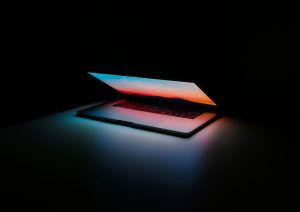Melatonin is a common over-the-counter drug in many Canadian homes. Available as a pill, gummy, or vape. Currently, this hormone is a staple of many nighttime routines. However, many medical professionals do not support melatonin’s gain of popularity.
Our brain releases melatonin when it is dark. This hormone naturally signals our circadian rhythm. Melatonin supplements function as a sleep aid.

Chemical structure of melatonin.
Melatonin is an over-the-counter natural health product in Canada. While in many other countries, it is a prescription drug.
With many forms of melatonin commercially available in Canada, use has increased dramatically from 2000-2018. The marketing of this hormone has led to uses against medical advice gaining popularity. Many use melatonin to control sleep schedule abnormalities caused by sleep disorders, anxiety, and restlessness.
Users have even incorporated melatonin into their daily routines. Claiming it is the key component allowing them to maintain a healthy sleep schedule.
However, many doctors do not recommend long-term dosing of melatonin. Doctors strictly recommend melatonin for short-term usage.
Doctors generally only support using melatonin to recover from jet lag and other short-term sleep schedule interruptions.
The use of melatonin to treat the common sleep disorder delayed sleep-wake phase disorder has been controversial. Sleep specialists prefer to treat it with bright light therapy or chronotherapy.
There is also a lack of scientific evidence supporting that melatonin use can improve the sleep quality of people with insomnia.

Insomnia is a common sleep disorder. People with insomnia may turn to melatonin for relief.
There is also evidence that long-term use may lead to your body stopping the natural production of melatonin, leaving you dependent on the hormone.
So, consult your doctor before taking melatonin. For every positive testimonial from someone who freely doses themselves, a medical professional is frowning on that decision.


